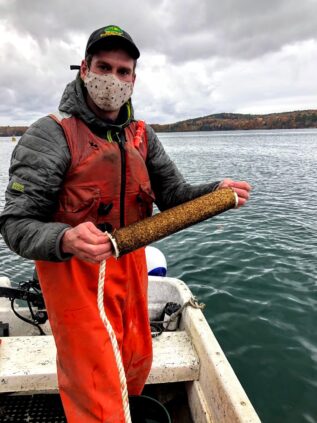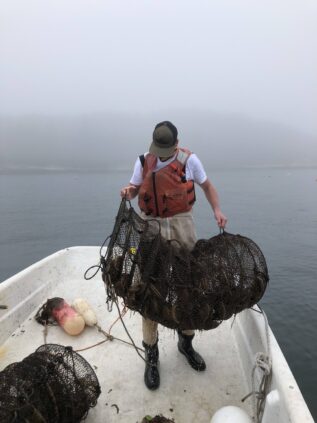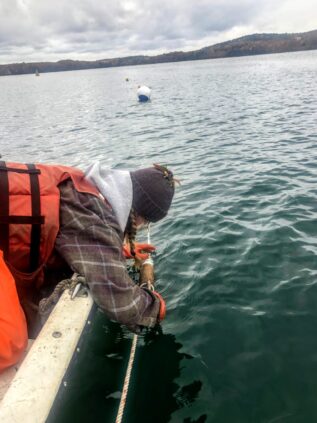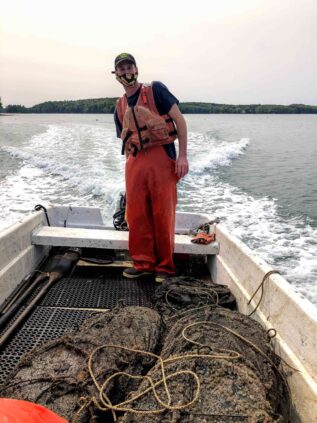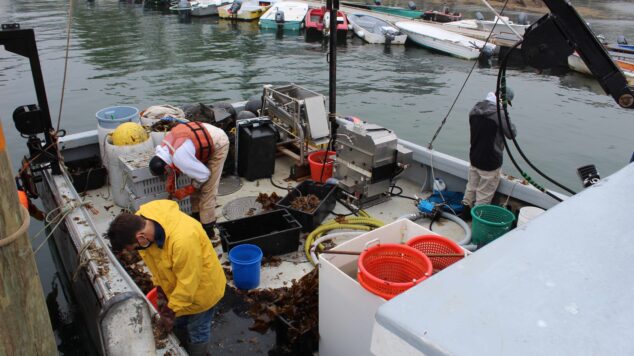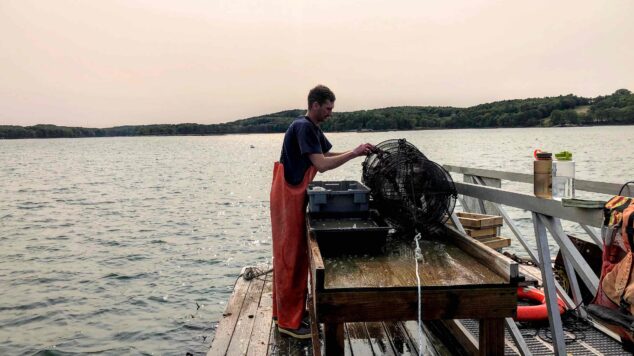Aquaculture Experimental Station
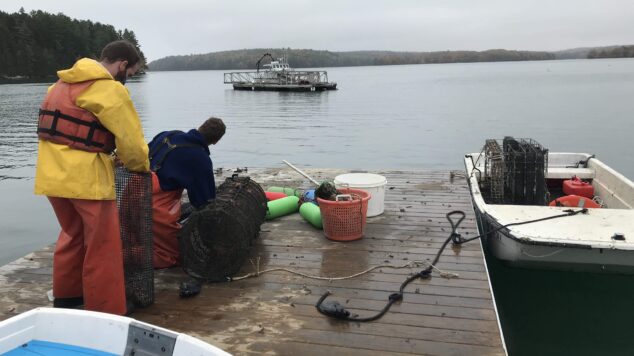
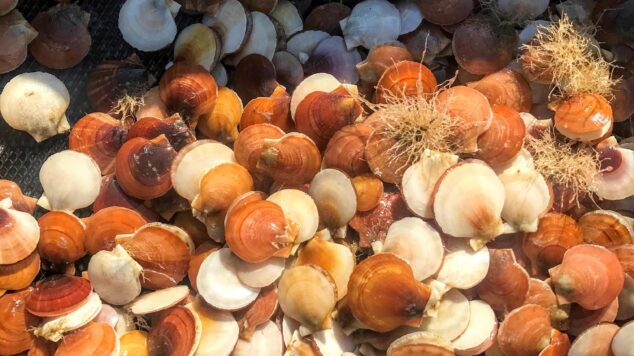

We hope to aid in the sustainable development of aquaculture in the Gulf of Maine.

The Aquaculture Experimental Station at the Darling Marine Center is a part of the collaborative partnership between University of Maine’s Aquaculture Research Institute, U.S. Department of Agriculture’s Agricultural Research Service, and Auburn University. Read more about the partnership here.
Our goal is to use these data to develop predictive growth models for larger scale spatial and temporal analyses of site selection and production optimization. We hope to aid in the sustainable development of aquaculture in the Gulf of Maine and fill in information gaps regarding the effects of environmental conditions on the growth of these species.
In the summer of 2020 the Brady Lab deployed long lines and bottom cages on the Darling Marine Center experimental sea farm in the Damariscotta River. Currently, graduate students and undergraduate interns are tracking the growth of two year classes of sea scallops held in both lantern nets and bottom cages as well as a line of Sugar Kelp. We will be adding oysters in the spring of 2021 for analysis of the performance of various genetic lines. This work is supported by the Land Ocean Biogeochemical Observatory (LOBO) buoy moored on the edge of the lease site. This buoy continuously records environmental factors such as temperature, turbidity, irradiance, nitrate, and dissolved inorganic carbon.
